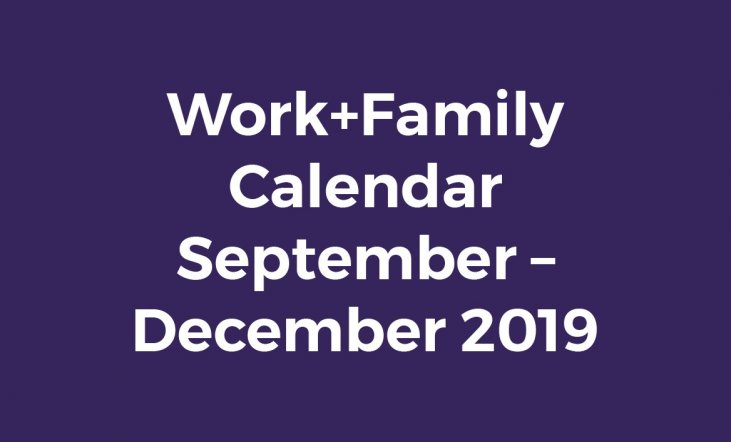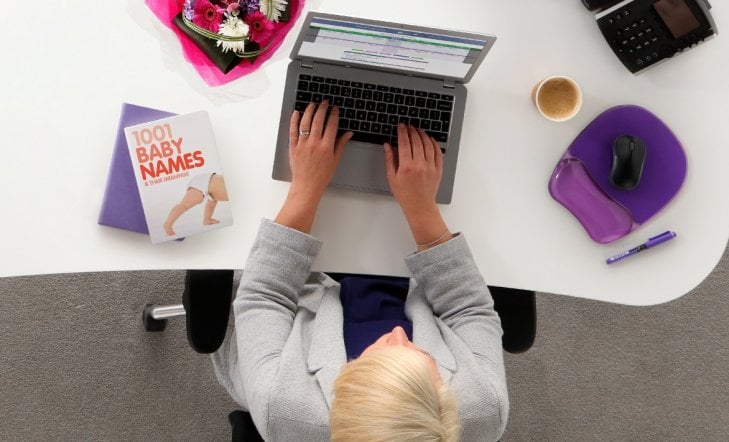Newsletter Sign Up
Regular work+family updates for
HR and diversity professionals.
10-point plan for getting women back to work
"Spending time at home with children or looking after elderly parents does not make women or men less capable and it should not be a deterrent when wanting to go back to work at the appropriate time", insisted MP Flick Drummond, Co-Chair of the All-Party Parliamentary Group on Women and Work at a Parliamentary reception on January 23rd.
The event outlined the findings of the APPG's year-long inquiry into 'women returners'. As APPG Co-Chair Jess Phillips MP put it: "It's no wonder we're struggling to get over the productivity line when we're ignoring half the population: it's about the economy, stupid"
Flick Drummond and Jess Phillips form a stellar team, role modeling how change agents can unite for a common purpose, across a political divide. Their APPG on Women and Work has made a splash: the issues are not new and the solutions not rocket science but among other virtues, they have come up with a succinct and practical set of 10 action points, ranging from employers having carers policies; to flexible apprenticeships; to returnship programmes; to removing barriers to work for disabled women. And they even quote My Family Care's research into Shared Parental Leave on p4 of this succinct report.
The launch event also included speeches by Caroline Dinenage MP, Parliamentary Under Secretary of State for Women, Equalities and Early Years and by Sarah Champion MP, Shadow Secretary of State for Women and Equalities.
Caroline Dinenage pointed out three areas that need to be addressed for women to be able to fulfil their economic potential: flexible working, shared care of children (including a need for better Shared Parental Leave provisions); and better and more accessible childcare.
The APPG's 10 recommendations
- Equalise Statutory Maternity Pay and Statutory Shared Parental Leave Pay so that couples are not financially penalised if they choose to take up Shared Parental Leave.
- Government to enable mothers who are self-employed to claim a form of 'Statutory Maternity Pay' and re-examine how the self-employed are treated for maternity and paternity related benefits.
- Government to work across all departments, in consultation with disabled user groups, to map and better understand what is needed to help women with disabilities to secure employment and progress within the workplace.
- Government to consider offering more flexible, targeted support to a smaller number of parents for whom free childcare is most likely to make the biggest difference.
- Every workplace with 250 or more employees should have a carers policy detailing organisational support available for those with caring responsibilities.
- Employers with 250 or more employees should consider putting in place paid returner programmes or returnships with guaranteed training, advice, and support.
- Government to take further steps to diversify the apprenticeships sector by specifying that a percentage of apprenticeships should be part-time or flexible.
- Employers should promote best practice through a flexible working kitemark with official accreditation and assessment to increase flexible working visibility and actively encourage the uptake of flexible working.
- Schools should ensure that information about self-employment and entrepreneurships are on the curriculum at secondary and sixth form level.
Download the full report here.
"It's about all women"
Speaking at the launch, co-chair of the APPG, Conservative MP Flick Drummond MP added: "I would like to see a culture where we recognise that caring responsibilities have a positive impact on our ability to 'do the job' and that this is understood and valued by employers across the country... If we want to be a happier and more successful country, we must appreciate that some people take time out of the workplace for either caring responsibilities or to pursue other interests."
Co-Chair Jess Phillips emphasized that initiatives to bring women back to work should be "Not just women on boards, not just women in finance... it's about all women". That said, Jess Phillips also observed: "It is unsurprising that some of the best examples of schemes to support and encourage women back into work came from the private sector where the business case for recruiting and keeping the best talent is understood."
Jess Phillips added that "childcare should be as important as other infrastructure spending, people can't work without it." She has a way of making her arguments very easy to grasp and is using every channel to ensure that, not only Government and employers hear her messages, but individual women too. Alongside her political work, Jess Phillips' book Everywoman will be published this month.
In her commentary on the book, Phillips urges, "By demanding to be heard, by dealing with our imposter syndrome, by being cheerleaders, doers not sayers, creating our own networks and by daring to believe that we can make a difference, we can."
More of the news coverage received by the first annual report of the APPG on Women and Work can be found here.
Jennifer Liston-Smith, Director, Head of Coaching & Consultancy, My Family Care












